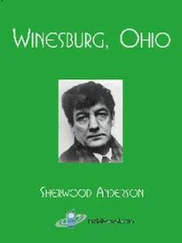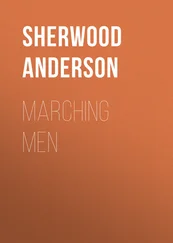Sherwood Anderson - Poor White
Здесь есть возможность читать онлайн «Sherwood Anderson - Poor White» — ознакомительный отрывок электронной книги совершенно бесплатно, а после прочтения отрывка купить полную версию. В некоторых случаях можно слушать аудио, скачать через торрент в формате fb2 и присутствует краткое содержание. Жанр: Альтернативная история, literature_20, foreign_antique, foreign_prose, Исторические приключения, на английском языке. Описание произведения, (предисловие) а так же отзывы посетителей доступны на портале библиотеки ЛибКат.
- Название:Poor White
- Автор:
- Жанр:
- Год:неизвестен
- ISBN:нет данных
- Рейтинг книги:3 / 5. Голосов: 1
-
Избранное:Добавить в избранное
- Отзывы:
-
Ваша оценка:
- 60
- 1
- 2
- 3
- 4
- 5
Poor White: краткое содержание, описание и аннотация
Предлагаем к чтению аннотацию, описание, краткое содержание или предисловие (зависит от того, что написал сам автор книги «Poor White»). Если вы не нашли необходимую информацию о книге — напишите в комментариях, мы постараемся отыскать её.
Poor White — читать онлайн ознакомительный отрывок
Ниже представлен текст книги, разбитый по страницам. Система сохранения места последней прочитанной страницы, позволяет с удобством читать онлайн бесплатно книгу «Poor White», без необходимости каждый раз заново искать на чём Вы остановились. Поставьте закладку, и сможете в любой момент перейти на страницу, на которой закончили чтение.
Интервал:
Закладка:
Sherwood Anderson
Poor White: A Novel
BOOK ONE
CHAPTER I
Hugh McVey was born in a little hole of a town stuck on a mud bank on the western shore of the Mississippi River in the State of Missouri. It was a miserable place in which to be born. With the exception of a narrow strip of black mud along the river, the land for ten miles back from the town—called in derision by river men “Mudcat Landing”—was almost entirely worthless and unproductive. The soil, yellow, shallow and stony, was tilled, in Hugh’s time, by a race of long gaunt men who seemed as exhausted and no-account as the land on which they lived. They were chronically discouraged, and the merchants and artisans of the town were in the same state. The merchants, who ran their stores—poor tumble-down ramshackle affairs—on the credit system, could not get pay for the goods they handed out over their counters and the artisans, the shoemakers, carpenters and harnessmakers, could not get pay for the work they did. Only the town’s two saloons prospered. The saloon keepers sold their wares for cash and, as the men of the town and the farmers who drove into town felt that without drink life was unbearable, cash always could be found for the purpose of getting drunk.
Hugh McVey’s father, John McVey, had been a farm hand in his youth but before Hugh was born had moved into town to find employment in a tannery. The tannery ran for a year or two and then failed, but John McVey stayed in town. He also became a drunkard. It was the easy obvious thing for him to do. During the time of his employment in the tannery he had been married and his son had been born. Then his wife died and the idle workman took his child and went to live in a tiny fishing shack by the river. How the boy lived through the next few years no one ever knew. John McVey loitered in the streets and on the river bank and only awakened out of his habitual stupor when, driven by hunger or the craving for drink, he went for a day’s work in some farmer’s field at harvest time or joined a number of other idlers for an adventurous trip down river on a lumber raft. The baby was left shut up in the shack by the river or carried about wrapped in a soiled blanket. Soon after he was old enough to walk he was compelled to find work in order that he might eat. The boy of ten went listlessly about town at the heels of his father. The two found work, which the boy did while the man lay sleeping in the sun. They cleaned cisterns, swept out stores and saloons and at night went with a wheelbarrow and a box to remove and dump in the river the contents of out-houses. At fourteen Hugh was as tall as his father and almost without education. He could read a little and could write his own name, had picked up these accomplishments from other boys who came to fish with him in the river, but he had never been to school. For days sometimes he did nothing but lie half asleep in the shade of a bush on the river bank. The fish he caught on his more industrious days he sold for a few cents to some housewife, and thus got money to buy food for his big growing indolent body. Like an animal that has come to its maturity he turned away from his father, not because of resentment for his hard youth, but because he thought it time to begin to go his own way.
In his fourteenth year and when the boy was on the point of sinking into the sort of animal-like stupor in which his father had lived, something happened to him. A railroad pushed its way down along the river to his town and he got a job as man of all work for the station master. He swept out the station, put trunks on trains, mowed the grass in the station yard and helped in a hundred odd ways the man who held the combined jobs of ticket seller, baggage master and telegraph operator at the little out-of-the-way place.
Hugh began a little to awaken. He lived with his employer, Henry Shepard, and his wife, Sarah Shepard, and for the first time in his life sat down regularly at table. His life, lying on the river bank through long summer afternoons or sitting perfectly still for endless hours in a boat, had bred in him a dreamy detached outlook on life. He found it hard to be definite and to do definite things, but for all his stupidity the boy had a great store of patience, a heritage perhaps from his mother. In his new place the station master’s wife, Sarah Shepard, a sharp-tongued, good-natured woman, who hated the town and the people among whom fate had thrown her, scolded at him all day long. She treated him like a child of six, told him how to sit at table, how to hold his fork when he ate, how to address people who came to the house or to the station. The mother in her was aroused by Hugh’s helplessness and, having no children of her own, she began to take the tall awkward boy to her heart. She was a small woman and when she stood in the house scolding the great stupid boy who stared down at her with his small perplexed eyes, the two made a picture that afforded endless amusement to her husband, a short fat bald-headed man who went about clad in blue overalls and a blue cotton shirt. Coming to the back door of his house, that was within a stone’s throw of the station, Henry Shepard stood with his hand on the door-jamb and watched the woman and the boy. Above the scolding voice of the woman his own voice arose. “Look out, Hugh,” he called. “Be on the jump, lad! Perk yourself up. She’ll be biting you if you don’t go mighty careful in there.”
Hugh got little money for his work at the railroad station but for the first time in his life he began to fare well. Henry Shepard bought the boy clothes, and his wife, Sarah, who was a master of the art of cooking, loaded the table with good things to eat. Hugh ate until both the man and woman declared he would burst if he did not stop. Then when they were not looking he went into the station yard and crawling under a bush went to sleep. The station master came to look for him. He cut a switch from the bush and began to beat the boy’s bare feet. Hugh awoke and was overcome with confusion. He got to his feet and stood trembling, half afraid he was to be driven away from his new home. The man and the confused blushing boy confronted each other for a moment and then the man adopted the method of his wife and began to scold. He was annoyed at what he thought the boy’s indolence and found a hundred little tasks for him to do. He devoted himself to finding tasks for Hugh, and when he could think of no new ones, invented them. “We will have to keep the big lazy fellow on the jump. That’s the secret of things,” he said to his wife.
The boy learned to keep his naturally indolent body moving and his clouded sleepy mind fixed on definite things. For hours he plodded straight ahead, doing over and over some appointed task. He forgot the purpose of the job he had been given to do and did it because it was a job and would keep him awake. One morning he was told to sweep the station platform and as his employer had gone away without giving him additional tasks and as he was afraid that if he sat down he would fall into the odd detached kind of stupor in which he had spent so large a part of his life, he continued to sweep for two or three hours. The station platform was built of rough boards and Hugh’s arms were very powerful. The broom he was using began to go to pieces. Bits of it flew about and after an hour’s work the platform looked more uncleanly than when he began. Sarah Shepard came to the door of her house and stood watching. She was about to call to him and to scold him again for his stupidity when a new impulse came to her. She saw the serious determined look on the boy’s long gaunt face and a flash of understanding came to her. Tears came into her eyes and her arms ached to take the great boy and hold him tightly against her breast.
Читать дальшеИнтервал:
Закладка:
Похожие книги на «Poor White»
Представляем Вашему вниманию похожие книги на «Poor White» списком для выбора. Мы отобрали схожую по названию и смыслу литературу в надежде предоставить читателям больше вариантов отыскать новые, интересные, ещё непрочитанные произведения.
Обсуждение, отзывы о книге «Poor White» и просто собственные мнения читателей. Оставьте ваши комментарии, напишите, что Вы думаете о произведении, его смысле или главных героях. Укажите что конкретно понравилось, а что нет, и почему Вы так считаете.












